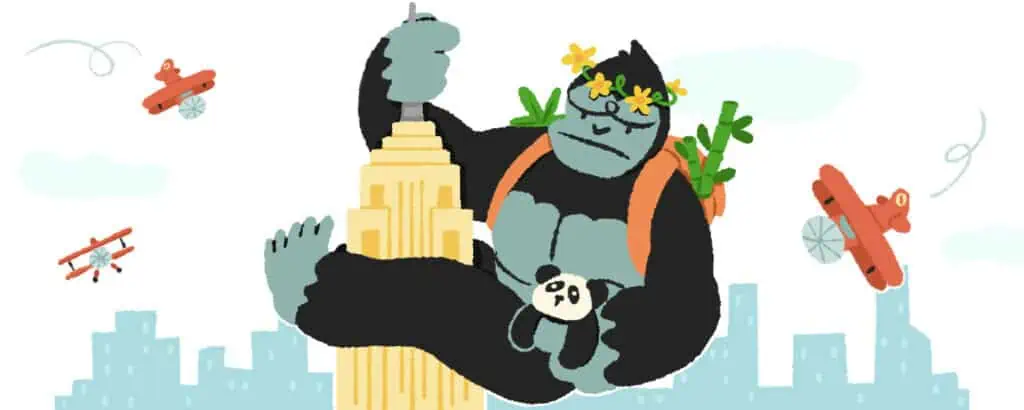The Freedom Tower. The Statue of Liberty. The City That Never Sleeps. Such are the images of possibility and promise that New York evokes.
At the same time, the state’s many strict and sometimes convoluted laws can turn your east coast dream into a nightmare in (ahem) a New York minute. To help you move to the Empire State with confidence—and without legal troubles—take a few minutes to familiarize yourself with what you can (and can’t) transport into your new home state.
New York Alcohol Laws
Generally, there are no prohibitions against transporting alcohol into New York state for your personal use. The thing to note here is that open containers are illegal in New York if they are anywhere within reach of the driver’s seat. This includes in the hands (or in the laps, or under the feet) of other passengers.
What counts as an “open container”?
A container does not have to be open to being deemed “an open container”; a bottle that has been opened is an open container, even if the cap has been screwed tightly back on. On top of this, it doesn’t matter if the vehicle is moving or parked—the law applies at all times on all public roads (and parking lots).
Open containers are only legal to have in your vehicle if they are in the trunk or, if there’s no trunk, back behind the seat furthest from the driver. As an extra tip, we’d advise not even having an empty container in your vehicle, as that can be enough for a police officer to start asking questions and possibly perform a full DWI investigation, which is no fun even if you are sober.
New York Animal and Pet Laws
Like most (if not all) states, New York requires a Certificate of Veterinary Inspection (CVI) for all dogs and cats brought into New York.
According to the state’s website, your pet’s CVI must be issued within 30 days prior to entry into New York. When applicable, your CVI must also include rabies vaccination information. In addition, New York state requires your dog or dogs to be licensed “immediately” with your local municipality.
To get your dog licensed in New York, click here.
Which animals can I bring to New York City?
In addition to dogs and cats, animals that New York City allows to be kept as pets include:
- Domesticated rabbits and horses
- Gerbils, hamsters, guinea pigs, chinchillas, other small animals
- Parakeets, parrots, pigeons, canaries, hens or female chickens, other small birds
- Non-snapping turtles larger than four inches
- Certain reptiles
- Honey bees
What animals can I not bring to New York City?
The list of animals that cannot be kept as pets in New York City is much longer.
Be aware that laws can differ between New York City and the rest of the state. For an exhaustive list of animals illegal to be kept as pets in New York state, check out this 25-page pdf produced by the New York Department of Agriculture. (More than half the list consists of a massive number of monkeys and snakes.)
Some highlights of animals not allowed in New York include:
- Black spider monkey
- Tiger
- Leopard
- Coyote
- Giant panda
- King cobra
- Swamp crocodile
If you have a question about your particular pet, including your pet giant panda, contact the New York Department of Agriculture and Markets here.
Moving far away?
Do it cheaper.
MovingPlace can save up to 40% compared to traditional interstate moving companies. Click here to learn how.
New York Firearm and Gun Laws (and Permits)
While laws can vary to some degree across the state, New York is known for having the strictest gun laws in the U.S.
Moving to New York with a gun can be tricky. If you have a permit to carry in your original state, you’ll have a grace period once arriving in New York state to obtain a New York state permit for your handgun, rifle, or long gun. But if you are moving to New York City, there is no grace period for weapons.
In other words, you cannot legally bring your gun with you when you move to New York City.
New York Gun Permits (two permits are required in New York City)
Handguns and items that fall under the broad definition of “assault weapon” (as defined in the NY SAFE Act) are illegal to carry in New York without a permit. See that link for more details.
Specifically, in New York City, a special city permit is required on top of the state-issued permit to possess ANY kind of firearm. Long guns and rifles fall under a separate category and are, in some parts of the state, less tightly controlled. Unlike with handguns, it is actually legal to open carry a long gun in New York (though you still need a permit).
You’ll have to store it somewhere, surrender it to the authorities in advance of your move, or transfer it to someone who can legally hold onto it while you work through the process of obtaining a license to possess or purchase a handgun.
“…if you are moving to New York City, there is no grace period for weapons. In other words, you cannot legally bring your gun with you when you move to New York City.”
What is important to know if you are moving to New York is that the state does not necessarily recognize permits or licenses issued in other states. In other words, depending on your gun and your situation, New York may not care what sort of legal permission you have from your home state and declare that you are in violation of New York state or City firearms laws.
One exception is if you are legally licensed in your home state and are just passing through New York en route to another state where your firearm is legal and your permit or license valid. Even then your firearm must be unloaded and, separately from your ammunition, locked, and out of reach.
Once again, the above applies to New York state. In New York City, mere possession of a firearm requires a city-issued permit, even if you are just passing through. We suggest taking the long way around. Traffic is terrible anyway.
What’s the penalty for bringing a gun to New York?
In New York, gun-related offenses can rank anywhere from a class A misdemeanor, punishable by up to 1-year imprisonment and up to a $1,000 fine, to a class B felony, punishable by up to 25 years imprisonment.
New York Penal Code Section 265.00 and Section 400.00, along with all articles contained within, cover all you need to know. If you still aren’t completely sure how to navigate this sea of laws and you just have to bring your gun, contact the police or sheriff’s department in your new home county/municipality. If that doesn’t help you sleep better at night, get some quality legal advice. It’s better—and probably cheaper—than facing a weapons charge.
What other weapons are illegal in New York?
Aside from firearms, New York also has laws prohibiting owning other kinds of weapons.
| Illegal weapons without a license | Illegal weapons in any circumstance | |
| BB guns | Stun guns | Throwing stars (also known as Chinese stars and shuriken) |
| Paintball guns | Switchblades | Various kinds of knuckles and clubs |
| Pellet guns | Nunchucks | Slingshots |
However, in 2019, the ban on certain of these, notably stun guns, tasers and nunchucks, was determined by the federal court to be unconstitutional. Yet the ban is, at the moment, still on the books. You may find resources asserting that stun guns, tasers, and nunchucks are legal in New York City, but the issue still seems to be unresolved. We suggest erring on the side of caution.
What about knives?
New York laws concerning knives are as convoluted as those pertaining to guns. State Penal Code Section 265 defines certain knives that are illegal, but in Section 265.01, it is stated that possession of “any dagger, dangerous knife…or undetectable knife with intent to use the same unlawfully against another” constitutes criminal possession of a weapon in the fourth degree. (That’s not a good thing.)
The American Knife and Tool Institute gives a rundown of New York statutes regarding knives with several real scenarios to illustrate how the laws have played out. Of course, this all pertains to people already in New York. For someone like yourself, hauling your stuff into the state in your car or on a rental truck, just having that illegal knife or billy club may be enough to get you into hot water.
Get Help Unloading Your Rental Truck
See prices for movers by the hour—instantly.
Read real customer reviews.
Easily book your help online.
New York Plants and Produce Laws
House plants are generally not a concern when moving to New York, unlike many other states. But there are a whole host of plants that New York regulates, or even outright bans.
So before you put those potted pets on your moving truck, check the New York State Department of Environmental Conservation’s list of all regulated and prohibited plant species.
Prohibited plants
New York defines “prohibited plants” as:
“Prohibited invasive species cannot be knowingly possessed with the intent to sell, import, purchase, transport or introduce. In addition, no person shall sell, import, purchase, transport, introduce or propagate prohibited invasive species.”
Regulated plants
New York defines “regulated plants” as:
“…species which cannot be knowingly introduced into a free-living state, or introduced by a means that one should have known would lead to such an introduction, although such species shall be legal to possess, sell, buy, propagate and transport.”
| TERRESTRIAL PLANTS | |||
| PROHIBITED | REGULATED | ||
| Amur Cork Tree | Fly Honeysuckle | Mile-a-minute Weed | Black Locust |
| Amur Honeysuckle | Garden Loosestrife | Morrow’s Honeysuckle | Burning Bush |
| Autumn Olive | Garlic Mustard | Mugwort | Chinese Silver Grass |
| Beach Vitex | Giant Hogweed | Multifora Rose | Japanese Virgin’s Bower |
| Black Swallow-wort | Giant Knotweed | Narrowleaf Bittercress | Norway Maple Acer |
| Bohemian Knotweed | Golden Bamboo | Oriental Bittersweet | Winter Creeper |
| Border Privet | Gray Florist’s Willow | Pale Swallow-wort | |
| Broad-leaved Pepper-grass | Japanese Angelica Tree | Porcelain Berry | |
| Canada Thistle | Japanese Barberry | Slender False Brome | |
| Lepidium latifolium | Japanese Chaff Flower | Small Carpetgrass | |
| Chinese Lespedeza | Japanese Honeysuckle | Spotted Knapweed | |
| Chinese Yam | Japanese Hops | Sycamore Maple | |
| Cogon Grass | Japanese Knotweed | Tartarian Honeysuckle | |
| Common Buckthorn | Japanese Stilt Grass | Wavyleaf Basketgrass | |
| Cup-plant | Kudzu | Wild Chervil | |
| Cut-leaf Teasel | Leafy Spurge | Wineberry Rubus | |
| Cypress Spurge | Lesser Celandine | Yellow Groove Bamboo | |
| WETLAND PLANTS | AQUATIC PLANTS | ||
| PROHIBITED | PROHIBITED | ||
| Common Reed Grass | Brazilian Waterweed | ||
| Marsh Dewfower | Broadleaf Water-milfoil Hybrid | ||
| Purple Loosestrife | Curly Pondweed | ||
| Reed Manna Grass | Eurasian Water-milfoil | ||
| Yellow Iris | Fanwort | ||
| Floating Primrose Willow | |||
| Frogbit | |||
| Hydrilla/Water Thyme | |||
| Parrot-feather |
Why are some plants illegal in New York?
Grapes are a vital component of New York’s economy, so protecting them is critical. Any part of a grapevine or plant (aside from the fruit itself), if infested, can cause catastrophe to the grape and wine industry.
The same goes for other fruit-bearing plants, which can harbor invasive and/or destructive pests. If you need to bring such plant material into the state, each item must be accompanied by a certificate of inspection from your state of origin verifying that it is all disease and pest-free.
While there may be no legal requirement to have your house plants inspected and certified, it is a great (and shall we add noble) idea to inspect your plants for any signs of pests. And that includes eggs and anything else pests can leave behind. Make sure your plants are sitting in pest- and disease-free soil. (For the same reason, please leave your firewood and scrap lumber behind.)
The USDA regularly updates its list of plant and pest programs. Check for any notices regarding New York or the northeast in general.
Is marijuana legal in New York?
Yes. In March of 2021, New York state passed a law decriminalizing marijuana—but to a degree.
It is now legal in New York to possess up to three ounces of marijuana outside of one’s residence, and up to five pounds of marijuana in one’s home. But it is also, as of this writing, still illegal to sell marijuana.
On top of this, laws detailing the legal limits of owning and growing marijuana plants, as well as selling and distributing marijuana, have not yet been worked out, and will take time to implement once they are.
But all this only matters once you are physically inside New York, because federal law still prohibits carrying marijuana across state lines! Doing so opens you up to the possibility of drug trafficking charges. So unless and until this changes, you’ll want to leave mary jane behind with your friends.
To read more about traveling with weed anywhere in the country, click here.
“It’s Up To You, New York, New York*”
When it comes to the laws regarding transporting weapons, animals, and plants, the safest route to take by far is simply not to have no weapons and nothing exotic in your possession when you enter New York.
We hope the above helps shed some light on this murky subject, but please, do not take any chances. Go directly to the New York State or NYC authorities—before you arrive—if you are not entirely certain of the legality of your situation. Get expert advice. Protect yourself.
You’ve got a world of possibility and promise waiting.




